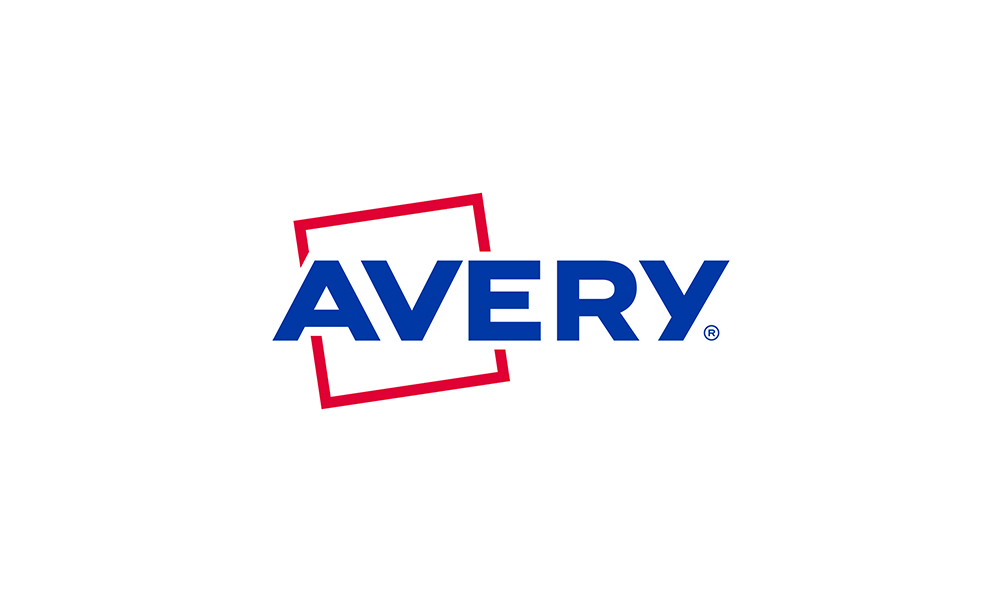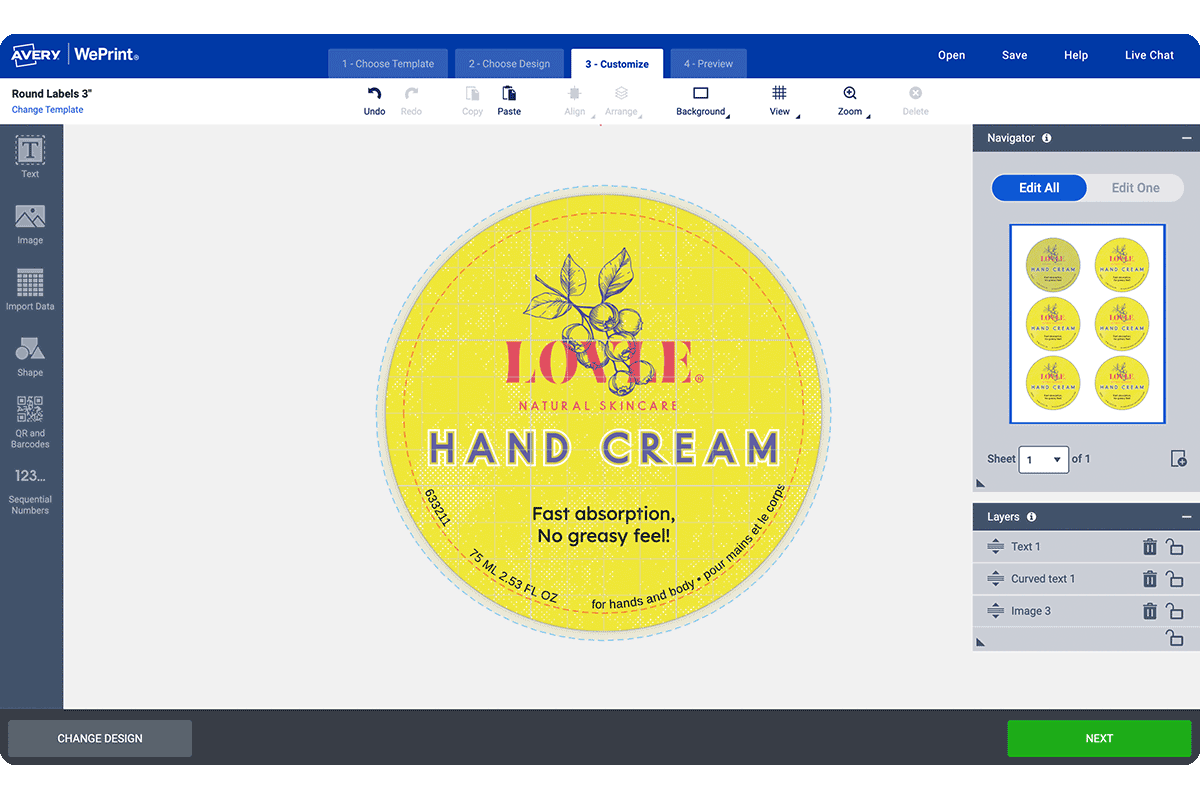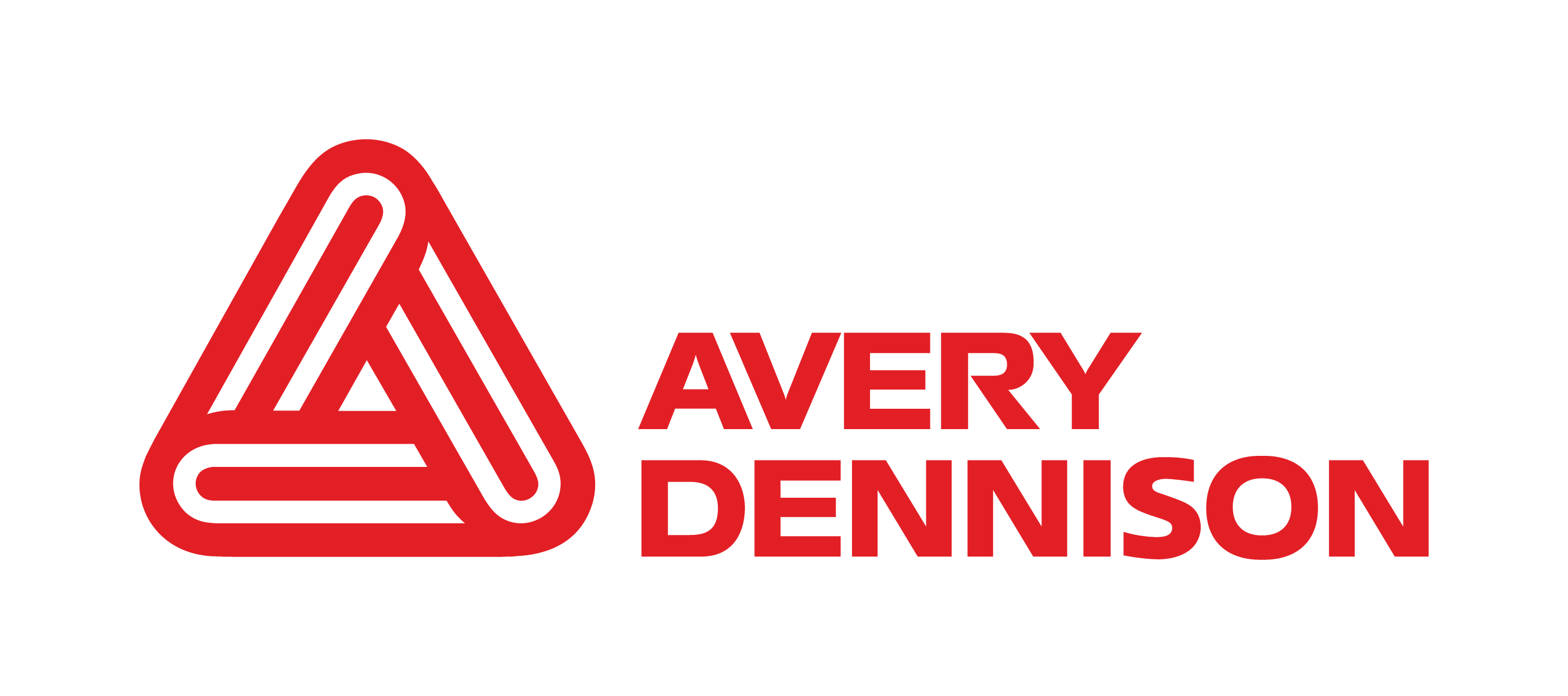Avery Sehorn High School: Exploring The Journey Of Growth And Learning
Many folks, you know, are curious about "Avery Sehorn High School," and that's a pretty interesting search, really. It brings up questions about what this place might be like, or perhaps who Avery Sehorn is and what their time in high school was all about. It's almost as if we're looking for a story, a particular kind of experience that shapes young lives. Now, it's worth noting, the information we have on hand, which is about buying blank and custom printed Avery labels, stickers, tags, and cards online, doesn't actually tell us anything specific about a high school or a person named Avery Sehorn. That text, quite honestly, focuses on design software and creating professional, personalized labels for all sorts of things, from organizing to adding special touches, which is a bit different from student life, you know?
High school, generally speaking, stands as a truly pivotal time for young people, doesn't it? It's where so much personal development happens, where friendships are often forged that last a lifetime, and where students, you know, begin to figure out who they are and what they might want to do in the world. This period, arguably, is filled with so many firsts and so many lessons, not just from textbooks but from everyday interactions and challenges. It's a place where young minds get to explore new ideas, try out different activities, and basically, just grow a lot.
So, while specific details about an "Avery Sehorn High School" aren't readily available in public records, or from the provided text, we can still think about what the high school journey typically involves. We can explore the common threads that tie together these formative years for so many students across different places. This article, in a way, aims to look at the broader picture of high school, touching on the kinds of experiences, the learning, and the personal transformations that usually take place during this very important chapter of life. It's about what it means to be a high schooler, more or less, and the impact those years can have.
Table of Contents
- The High School Experience: A Time of Discovery
- Academic Paths and Personal Growth
- Extracurricular Activities and Community Building
- Navigating Challenges and Building Resilience
- Preparing for What Comes Next: Life After High School
- The Legacy of High School Years
- Frequently Asked Questions About High School
The High School Experience: A Time of Discovery
When we think about high school, we often picture a bustling place, full of energy and different kinds of activities. It's a period, you know, where young people are moving from childhood into young adulthood, which is quite a big step. Students are suddenly faced with more choices, more responsibility, and often, a much larger social circle than they had before. This time, typically, helps shape their views on the world and their place within it. It's a pretty significant shift, actually, from earlier schooling.
For many, the high school experience is truly a mix of academic pursuits, social interactions, and personal exploration. It's where you might discover a passion for science, or perhaps, a hidden talent for writing or art. You know, these years are often about trying new things, even if they feel a bit uncomfortable at first. It's about learning not just subjects, but also about how to interact with others, how to handle different situations, and how to start making decisions for yourself. This journey, in some respects, is very much about finding your own way.
Every student's journey through high school is, of course, unique. Some might focus heavily on academics, aiming for top grades and prestigious universities. Others, you know, might pour their energy into sports teams, drama clubs, or community service projects. There are also those who find their niche in vocational training, learning practical skills for a future career. It's a time of so many different paths, and each one, you know, contributes to the rich tapestry of the high school environment. This period, it's almost, a mini-society where everyone plays a part.
The atmosphere within a high school, too it's almost, plays a huge role in this experience. A supportive environment, where students feel safe to express themselves and take risks, can really help them flourish. It's about having teachers who care, friends who uplift you, and opportunities that challenge you in good ways. When a school fosters a sense of belonging and encourages diverse interests, students, you know, tend to thrive. That's a pretty important aspect of any educational setting, isn't it?
And it's not just about what happens inside the classroom, either. High school life, you know, often extends far beyond the school bell. There are after-school clubs, weekend events, and, of course, the ever-present social scene. These informal settings, very often, are where some of the most memorable lessons are learned, like how to compromise, how to lead, or how to just be a good friend. It's a time, really, where young people get to practice being adults in a somewhat protected space, which is rather valuable.
Academic Paths and Personal Growth
Academics, naturally, form the backbone of the high school experience. Students, you know, are introduced to a wider range of subjects, from advanced mathematics and sciences to literature, history, and foreign languages. The curriculum, typically, gets more challenging, pushing students to think critically and solve more complex problems. This increased rigor, arguably, prepares them for higher education or the demands of a professional career. It's a pretty steep learning curve for many, actually.
For a student, perhaps like someone at "avery sehorn high school" might be, choosing their academic path can feel like a really big decision. They might pick electives that align with their interests, like computer programming, graphic design, or advanced arts courses. These choices, you know, can help them explore potential career fields or simply deepen their knowledge in areas they enjoy. It's about tailoring their learning a bit, which is rather exciting for many young people.
Beyond just learning facts and figures, high school academics also focus on developing crucial skills. We're talking about things like effective communication, problem-solving, research abilities, and time management. These are the kinds of skills, you know, that will serve them well no matter what path they choose after graduation. It's not just about memorizing, but about learning how to learn, and how to apply knowledge in different situations, which is a very practical skill to have.
Personal growth, you know, goes hand-in-hand with academic development during these years. As students tackle new subjects and face academic pressures, they also learn about their own strengths and weaknesses. They discover how they best learn, what motivates them, and how to overcome setbacks. This process of self-discovery, very often, is just as important as the grades they earn. It's a journey of figuring out who you are, really, and what you're capable of achieving.
Teachers, too it's almost, play a really important role in this journey. They're not just instructors; they're mentors, guides, and sometimes, even confidantes. A good teacher can inspire a love for a subject, help a student through a difficult time, or simply offer a listening ear. Their influence, you know, can extend far beyond the classroom, shaping a student's perspective and future choices. That's a pretty powerful impact, you know, that teachers can have.
Extracurricular Activities and Community Building
High school isn't just about what happens in the classroom; it's also, you know, very much about what happens outside of it. Extracurricular activities, like sports teams, debate clubs, drama productions, and student government, offer so many opportunities for growth and connection. These activities, arguably, help students develop leadership skills, teamwork, and a sense of responsibility. They're a really big part of the overall experience for many, honestly.
Joining a club or a team, for instance, allows students to pursue their interests and discover new talents. If someone at "avery sehorn high school" were passionate about music, they might join the band or choir. If they loved writing, perhaps the school newspaper or a creative writing club would be a perfect fit. These groups, you know, provide a space for students to explore their passions with like-minded peers, which is pretty cool.
Community building, naturally, is a huge part of these activities. Students learn to work together towards a common goal, whether it's winning a game, putting on a play, or organizing a school event. They develop a sense of camaraderie and belonging, which is very important for their well-being. These shared experiences, you know, often create strong bonds and lasting memories. It's about being part of something bigger than yourself, really.
Beyond the school grounds, many high schools also encourage students to get involved in community service. This might mean volunteering at local charities, participating in environmental clean-ups, or helping out at events in their town. Such experiences, you know, teach students about civic responsibility and the importance of giving back. It helps them understand the impact they can have on their local area, which is a pretty valuable lesson.
These extracurricular pursuits, you know, also help students develop a more balanced life. They learn to manage their time between academics, activities, and personal commitments. This skill, very often, is something that serves them well long after they leave high school. It's about finding that rhythm, you know, that allows them to thrive in multiple areas, which is pretty essential for life.
Navigating Challenges and Building Resilience
High school, like any significant period in life, comes with its own set of challenges. Students, you know, might face academic pressures, social anxieties, or personal struggles. It's a time of intense change, both emotionally and physically, and that can be a bit overwhelming for some. Learning to navigate these difficulties, arguably, is a key part of building resilience, which is a very important life skill.
One common challenge, for instance, is managing a heavier workload and higher expectations. Students, you know, might need to develop better study habits, learn to prioritize tasks, and seek help when they need it. It's about figuring out how to stay organized and on top of things, which is pretty crucial for success. This period, in a way, teaches them about responsibility and self-discipline.
Social dynamics, too it's almost, can be a source of both joy and stress. Friendships can shift, new groups can form, and students might experience peer pressure or feelings of exclusion. Learning to navigate these social complexities, you know, requires empathy, communication skills, and a strong sense of self. It's about finding your people, really, and learning how to interact respectfully with everyone.
For a student, perhaps at "avery sehorn high school," dealing with setbacks is also a big part of the learning process. Whether it's a disappointing grade, a loss in a sports competition, or a social misunderstanding, these moments, you know, teach valuable lessons. They learn to bounce back, to learn from their mistakes, and to keep moving forward. That ability to recover, arguably, is what resilience is all about.
Support systems, naturally, play a vital role in helping students through these challenges. Parents, teachers, counselors, and friends can all offer guidance and encouragement. Knowing there are people who care and who can help, you know, makes a huge difference. It's about having a safety net, really, when things get tough, which is very reassuring for young people.
Learning to advocate for themselves, too, is a significant part of this growth. Students, you know, learn to speak up for their needs, express their opinions respectfully, and seek solutions to problems. This self-advocacy, very often, empowers them to take control of their own learning and their own lives. It's about finding your voice, you know, and using it effectively.
Preparing for What Comes Next: Life After High School
As the high school years draw to a close, the focus, you know, often shifts towards what comes next. For many students, this means preparing for college applications, exploring vocational training programs, or looking for entry-level jobs. It's a time of big decisions and planning for the future, which can be both exciting and a little bit daunting, honestly.
Guidance counselors, naturally, become incredibly important during this period. They help students explore different career paths, understand college requirements, and navigate the application process. Their advice, you know, can be invaluable in helping students make informed choices about their next steps. It's about getting that professional insight, really, to help steer them in the right direction.
For those considering higher education, the high school curriculum, you know, is designed to build a strong academic foundation. Students take advanced placement (AP) courses or dual enrollment classes to earn college credits early. They also, arguably, work on building a strong transcript and participating in activities that will make their college applications stand out. It's a pretty competitive landscape, you know, so every little bit helps.
Other students, you know, might choose to enter the workforce directly after graduation. High schools often offer vocational programs or partnerships with local businesses to provide students with practical skills and work experience. This path, very often, allows them to gain independence and start their careers without delay. It's a very practical choice for many, actually.
No matter the path, high school aims to equip students with the tools they need to succeed in the adult world. This includes not just academic knowledge, but also life skills like financial literacy, critical thinking, and adaptability. These are the things, you know, that really prepare them for whatever challenges and opportunities lie ahead. It's about setting them up for a good future, more or less.
The transition from high school to the next stage of life, you know, is a significant one. It's a moment of independence, of taking on new responsibilities, and of continuing the journey of self-discovery. The experiences and lessons learned during the "avery sehorn high school" years, or any high school years for that matter, truly form the bedrock for these future endeavors. It's a pretty big moment, actually, when they step out into the wider world.
The Legacy of High School Years
The impact of high school, you know, often extends far beyond graduation day. The friendships made, the lessons learned, and the challenges overcome, arguably, shape who a person becomes. These years leave an indelible mark, influencing future choices, values, and even personality. It's a period that, very often, people look back on with a mix of fondness and nostalgia.
Many people, you know, stay connected with their high school friends for years, even decades. These are the people who shared those formative experiences, who saw you grow and change. The bonds forged during these years, very often, are some of the strongest and most enduring. It's a pretty special kind of connection, actually, that lasts a long time.
The skills and knowledge gained in high school, too it's almost, serve as a foundation for all future learning and career paths. Whether it's the ability to write a clear essay, solve a complex math problem, or collaborate effectively on a project, these fundamental competencies, you know, are constantly put to use. They're the building blocks, really, for everything that comes next.
Even the challenges faced in high school contribute to a person's character. Learning to cope with stress, to persevere through difficulty, and to adapt to new situations builds resilience and strength. These are the kinds of life lessons, you know, that are truly invaluable. It's about growing stronger, really, through every experience, good or bad.
So, while specific details about an "avery sehorn high school" might not be publicly available, the universal experience of high school remains a powerful and transformative one. It's a time of discovery, growth, and preparation for the adult world. The memories created, the lessons absorbed, and the connections made during these years, you know, continue to influence individuals long after they've moved on. It's a pretty significant chapter for everyone, really, who goes through it.
To learn more about personal development and educational journeys, you can visit a general resource like Wikipedia's High School page.
Learn more about educational paths on our site, and find resources for student support on this page.
Frequently Asked Questions About High School
What is the main purpose of high school?
High school, you know, typically aims to provide students with a comprehensive education, helping them develop academic skills, critical thinking, and social abilities. It prepares them, arguably, for higher education, vocational training, or entry into the workforce. It's about getting them ready for what comes next, really, in a very broad sense.
How important are extracurricular activities in high school?
Extracurricular activities, you know, are very important because they offer opportunities for personal growth beyond academics. They help students develop leadership, teamwork, and time management skills, while also fostering a sense of community and belonging. They're a pretty big part of the overall experience, actually, for many students.
What are some common challenges students face in high school?
Students, you know, often face challenges like increased academic pressure, social adjustments, and navigating personal growth. Learning to manage workload, build healthy relationships, and develop resilience, arguably, are common hurdles. It's a time of many changes, really, so some struggles are pretty typical.

About Us | Avery Products Corporation | Avery.com

Avery | Buy Blank & Custom Printed Labels Online | Avery.com

Productos | Avery Dennison | LPM